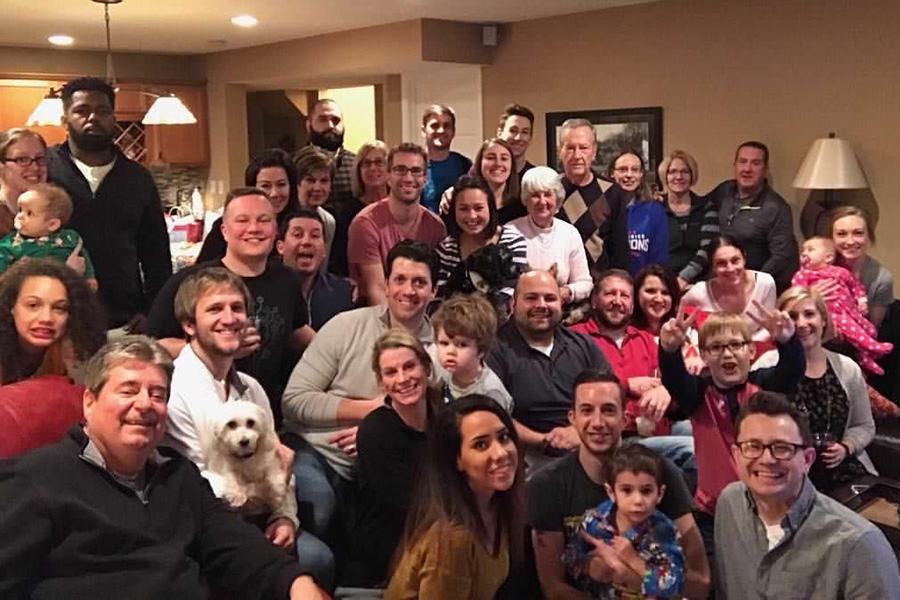
Mary Harris is surrounded by her family, including 5 kids, 16 grandkids, and 18 great-grandchildren.
How was Mary Harris—an 89-year-old matriarch for 5 kids, 16 grandkids, and 18 great-grandchildren—going to beat colon cancer? And, more importantly, would she maintain her independence when the standard treatment is major surgery?
Worried about that surgery, Harris was grateful for another option with University of Iowa Holden Comprehensive Cancer Center in the form of a clinical trial that meant she would avoid surgery if her body responded to immunotherapy.
“When they told me about the clinical trial, it just seemed like what I was supposed to do,” she says.
Leveraging a patient’s own immune system
Harris is a great example of the early success of an innovative clinical trial led by Saima Sharif, medical oncologist and primary investigator of the clinical trial.
The clinical trial looks to see if immunotherapy—a treatment that uses the patient’s immune system to detect and target cancer cells—can help avoid surgery.
“We’re looking to see if colon cancer responds to immunotherapy similarly to rectal cancers and only recommend surgery if the tumor grows or moves,” says Sharif.
Clinical trials at the national level must occur before this practice is enacted as a standard of care. To help catch colorectal cancer as early as possible, Sharif encourages individuals to get their colonoscopy screenings at age 45—and repeat every 10 years. There are other ways to screen including stool testing.
Catching cancer early
For Harris, her cancer was caught during screening after symptoms presented themselves.
“I just have really never thought that I had cancer or felt that I had cancer, but I did,” she says.
Thankfully, her cancer was discovered while it was still in an early stage. Her attitude towards her diagnosis has always been a resilient one focused in finding the right solution. Harris says if someone is eligible, they should really consider if a clinical trial could be right for them.
“I mean, you can try it, if it doesn't work, then you do something else,” Harris advises.
With tumor-free scans, Harris continues to live the same way she did before her cancer diagnosis. She’s traveling, spending time with her loved ones, and working on her dancing skills.
“I can still live on my own and take care of myself, and if I need to go to the store, I can go to the store,” she says. “It's just given me a chance of living my life fully.”
